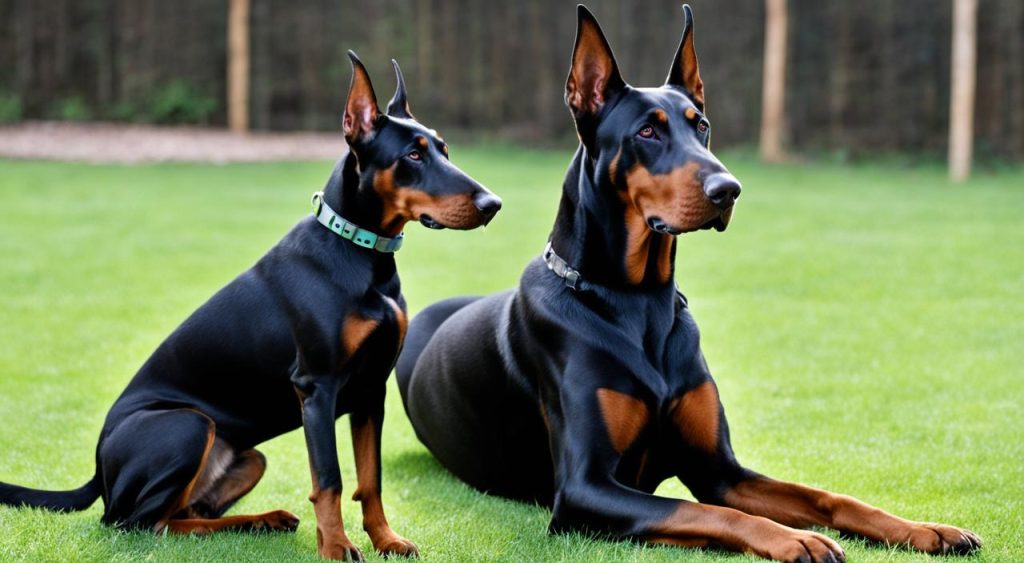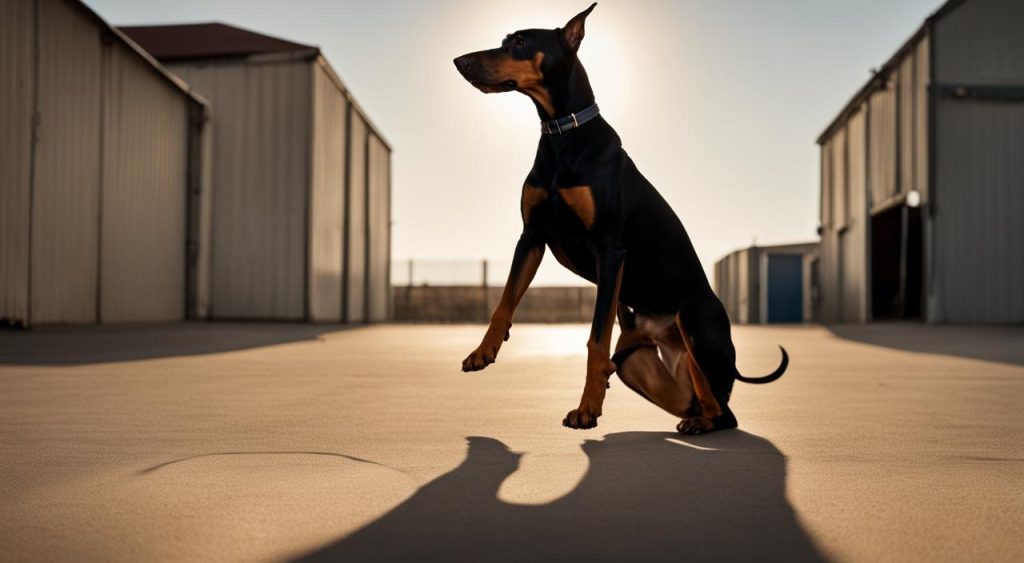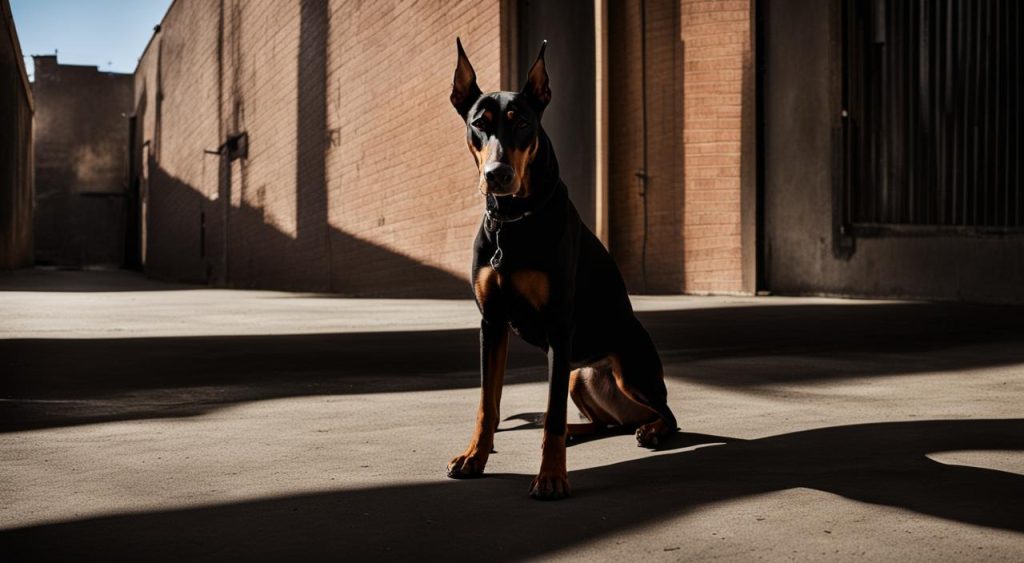Dobermans are loyal, intelligent, and devoted dogs. They have a natural instinct to please their owners, making them trainable and obedient. However, training a Doberman requires proper handling and consistent guidance. It is important to establish yourself as the leader and show them what you expect. Here are some important training tips for Dobermans:
Doberman obedience training
Obedience training is an essential part of training a Doberman. Here are some basic obedience commands and skills that you can teach your Doberman:
Doberman house training and socialization
In addition to obedience training, house training and socialization are also important for Dobermans:
Key Takeaways:
- Dobermans are trainable and obedient due to their natural instinct to please their owners.
- Proper handling and consistent guidance are crucial for training a Doberman.
- Establishing yourself as the leader is important in Doberman training.
- Obedience training is essential for a well-behaved Doberman.
- House training and socialization are important for Doberman behavior and well-rounded development.
Doberman Obedience Training
Obedience training is an essential part of training a Doberman. Their natural intelligence and eagerness to please make them highly trainable and responsive to commands. By establishing yourself as the leader and using positive reinforcement techniques, you can effectively train your Doberman pinscher to become a well-behaved and obedient companion.
One of the first commands to teach your Doberman is “sit.” This basic command not only helps control their behavior but also sets the foundation for other commands. To teach your Doberman to sit, hold a treat close to their nose and slowly move it upwards while saying “sit.” As their head moves up following the treat, their bottom will naturally lower onto the ground. Immediately reward your Doberman with praise and the treat.
Another crucial obedience command is “stay.” Teaching your Doberman to stay in one place until given the release cue is essential for their safety and your peace of mind. Start by having your Doberman sit, then with an open palm, say “stay” and take a step back. If they stay in place, reward them with praise and a treat. Gradually increase the distance and duration of the stay command.
Recall or “come” is a vital command that ensures your Doberman returns to you promptly. Begin indoors in a quiet room. Start by saying their name followed by “come” in an upbeat tone. Reward them with praise and treats when they come to you. As they become more reliable indoors, practice the recall command in different rooms and gradually introduce distractions.
Leash training is essential for a well-mannered Doberman. Start by introducing your Doberman to the leash in a positive way, associating it with treats and rewards. Begin with short walks, rewarding them for walking beside you without pulling. Use a firm but gentle grip on the leash, correcting any pulling behavior with a quick, gentle tug and redirecting their attention back to you.
In addition to these basic commands, it’s beneficial to teach your Doberman advanced obedience skills such as “down,” “leave it,” and “heel.” Consistency, patience, and positive reinforcement are key to successful Doberman obedience training.
Doberman House Training and Socialization
When it comes to training your Doberman, it is essential to focus not only on obedience but also on house training and socialization. These aspects play a crucial role in shaping your Doberman’s behavior and ensuring they grow into well-rounded and balanced dogs.
House training your Doberman is about teaching them where and when it is appropriate to relieve themselves. Start by establishing a regular feeding and bathroom schedule. Consistency is key here. Take your Doberman outside to their designated bathroom area after meals and reward them when they eliminate in the correct spot. Be patient and consistent in reinforcing good bathroom habits to avoid accidents inside the house.
Doberman puppies, like all puppies, need early socialization to become friendly and confident adults. Expose your puppy to different environments, sounds, people, and animals. This will help them develop positive associations and reduce the likelihood of fear or aggression later on. Consider enrolling your Doberman in puppy socialization classes, where they can learn and interact with other dogs under the guidance of an experienced trainer.
Remember, consistent and positive reinforcement is the key to successful Doberman house training and socialization. With patience and dedication, you can help your Doberman become a well-behaved and well-adjusted member of your family.





